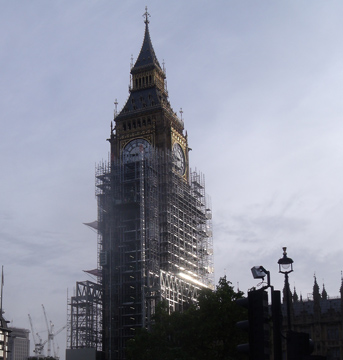Intimidation experienced by Parliamentary candidates, and others in public life, has become a threat to the integrity, vibrancy and diversity of public life in the UK, according to the Committee on Standards in Public Life. Many candidates felt vulnerable during election campaigns. One Labour candidate for the 2017 election told the committee that they would never now attend an ‘in-person’ event on their own ‘because of my experience at the 2015 election when I genuinely believed that I could have been subject to a physical assault’.
In a foreword to an 88-page report, Lord Bew wrote as chair of the committee: “A significant proportion of candidates at the 2017 general election experienced harassment, abuse and intimidation. There has been persistent, vile and shocking abuse, threatened violence including sexual violence, and damage to property.”
He called on political parties to ‘work together to address intimidation in public life’, and action from social media companies, political parties, Parliament, the police, broadcast and print media, and from MPs and Parliamentary candidates themselves. Proposed are changes to the law on social media companies’ liability for illegal content online, and an electoral offence of intimidating Parliamentary candidates and party campaigners.
Social media, for creating an ‘intensely hostile online environment’ is squarely blamed in the report. As it points out, social media companies such as Facebook, Twitter and Google do not have liability for the content on their sites, even if illegal. The report complained of a lack of transparency from those firms, and called on them to revise their tools for users to escalate any reports of potential illegal online activity to the police.
The report called for political parties to set ‘clear expectations about the behaviour expected of their members, both offline and online through a code of conduct for members’. New offences specific to social media are unnecessary and could be soon out of date, the report suggested. It described intimidation of Parliamentary candidates as of ‘particular significance because of the threat it poses to the integrity of the democratic process’; hence it asked the Government to consult on the introduction of a new offence in electoral law of intimidating Parliamentary candidates and party campaigners.
There was praise for the Parliamentary Liaison and Investigation Team (PLaIT), a specialist police team based in Parliament which is building a national picture of the security threat to MPs and acts as a central point of contact and advice for MPs, and makes recommendations for additional security measures. But MPs have to co-operate and act on that advice, the report added. The committee raised concern that none of the three main UK political parties, Conservatives, Labour and Liberal Democrats collected centralised data on reports of intimidatory behaviour in particular by their members during general election campaigns; although some of the 2017 general election intimidation was by ‘groups of activists who operate at the fringe of the political parties’.
The Liberal Democrats have developed resilience training for their candidates, ‘which was partly triggered by the awareness that they were losing good female candidates who were reluctant to engage in elections’, due to vicious online abuse. Convictions have taken place of individuals sending grossly offensive messages to or harassing MPs.
As for whether such intimidation is part of a wider ethical or cultural problem, the report noted: “We are aware that public office-holders in front line roles, such as teachers or police officers, will have experienced threats or abuse for many years whilst serving the public. We are now seeing an increasing number of public office-holders being subject to intimidation.”
On the point that candidates standing as local councillors must have their home addresses published on the ballot paper, the report said that the Government should bring forward legislation to remove that requirement. Election returning officers should not disclose the home addresses of those attending an election count, the report recommended. As with Parliamentary candidates, candidates standing as local councillors should have the option to publish only the ward in which they live on the ballot paper.
Comment
BCS, the former British Computer Society, now the Chartered Institute for IT, welcomed the report. Adam Thilthorpe, Director of External Affairs at BCS said: “It is a thoughtful exposition of an increasingly important issue, and it needs a thoughtful response. The organisations running these technology platforms have strong and positive values, and have not set out to create platforms for hate speech and abuse. It’s not possible to ‘un-invent’ social platforms, but it certainly is possible to work together to minimise and mitigate harms. It is only possible to do so by working together to address these issues, and the report highlights that everyone has a role to play, not just the platforms.
“As The Demos / BCS report: Signal & Noise identified in May this year – ‘… society, and by default, elected representatives are increasingly influenced by social media. Whilst this potentially presents vast new opportunities for MPs, it also presents fundamental challenges, as existing social media platforms are not tailored to politics.”
“The CSPL report calls for everyone to play their part in setting high ethical standards and identifying new ways of working together; to build a better world. All the players – political parties, politicians, the traditional media and the social media platforms – each have an important role to play.
Adam continues, “We believe the best way to do that is to get together to understand what that might look like. That’s why for the past few months, BCS been talking to the main political parties and platforms about organising a dialogue to air these issues.”
For the report in full visit https://www.gov.uk/government/publications/intimidation-in-public-life-a-review-by-the-committee-on-standards-in-public-life.









